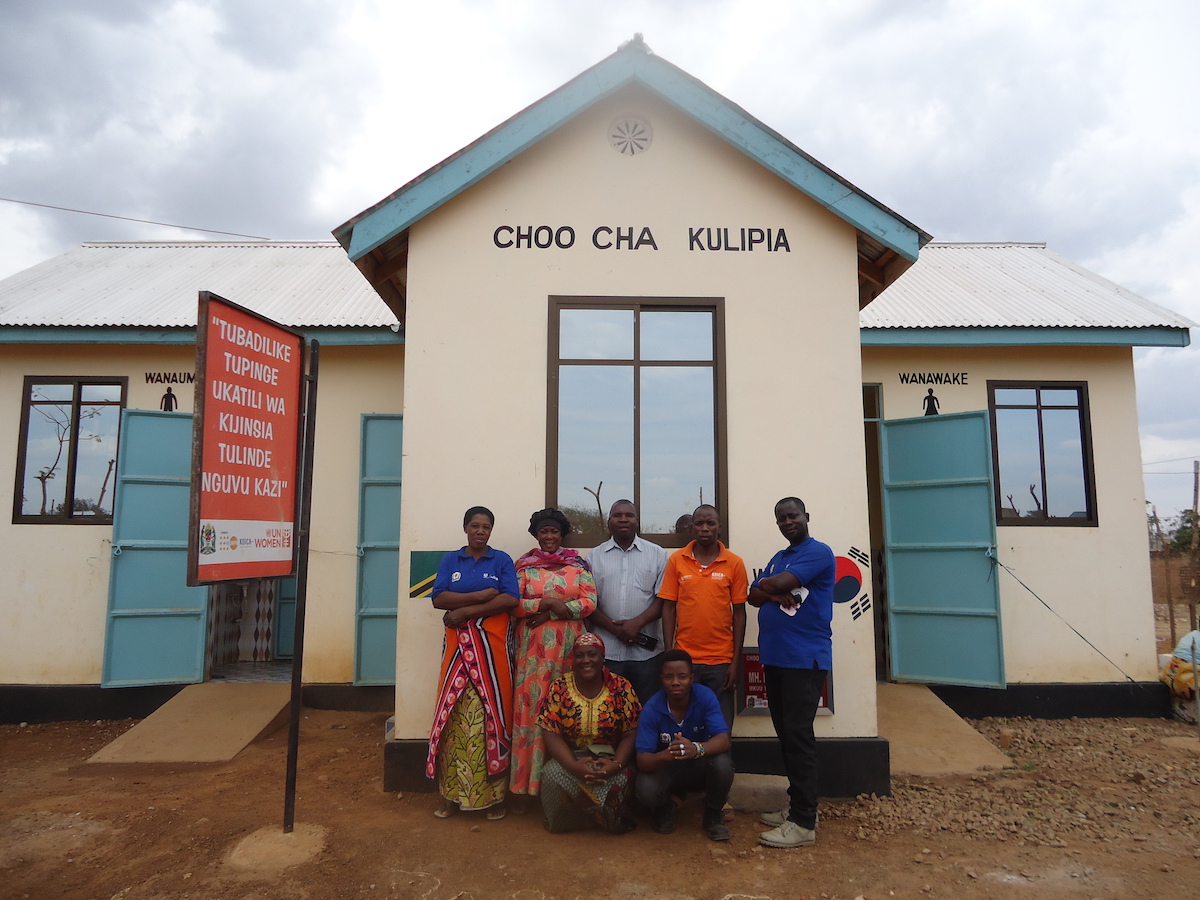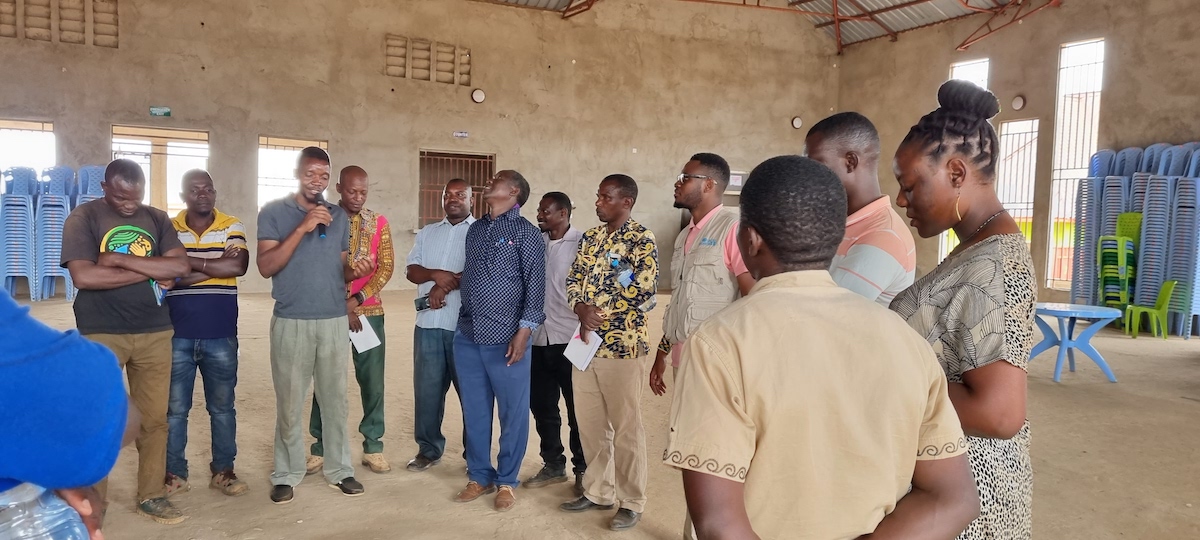Strengthening women market vendors’ protection through safe toilets in Shinyanga, Tanzania
Date:
Mwanamwiga Mihayo, a farmer and resident of the Msalala district in Shinyanga, in northern Tanzania was forced to stop selling vegetables at her local market for six years, afraid for her safety and the safety of her goods. Due to the absence of safe toilet facilities, she would have to walk to and from her home at least once a day.
"Walking back and forth from the market would take me at least 30 minutes each way," said Ms. Mihayo.
With no toilets specifically designated for women, basic hygiene facilities became an area where perpetrators of violence would target women, subjecting them to harassment, abuse, and even rape. Other women in the market often opted for the privacy of surrounding bushes, but this also quickly became unsafe, with increasing reports of incidences of sexual violence.
After experiencing significant losses and left with no other alternative, Ms. Mihayo made the decision to quit her business and stop selling her farm produce at the market.
Recent surveys have shown that one in three women market vendors from the Msalala district in Shinyanga have reported experiencing verbal abuse at work, with 28 percent reporting that they had experienced physical violence, and 4 per cent sexual violence.
Through the KOICA funded programme, “Realizing Gender Equality and Women’s Empowerment by empowering women and adolescent girls”, which UN Women is jointly implementing with UNFPA, UN Women completed the construction of public toilets in the Segese market, where Ms. Mihayo used to trade. In collaboration with the Shinyanga regional authority, a total of five toilets were built, with three for women, one for men, and one disability accessible toilet.

At an affordable service fee of USD $0.10, managed by the local government authority, the hygiene facilities have improved the safety and privacy of over 400 women and girls in the market. The number of women traders and vendors grew by 53 per cent, from 152 to 234, after the toilets became operational, and Ms. Mihayo resumed selling her farm produce at the market.
“It might sound like just a toilet to many, but for me, it has been liberating. I don’t have to fear for my safety anymore, and I don’t have to worry about the safety of my goods because I’m only gone for five minutes at a time. With less losses, my sales have increased, and life is just better all around.”
To further support these efforts, UN Women Tanzania, in collaboration with the Msalala District Council, strengthened the capacity of local government officials, officers from Police Gender and Children Desks, traditional leaders, healthcare workers and over 200 female and male market vendors on the prevention and response of violence against women and girls in marketplaces.

The programme also established a market committee consisting of eight women and six men to develop market by-laws in collaboration with the Segese market community, addressing governance, sanitation, and a gender-responsive code of conduct.
The market committee is developing a market maintenance plan through the income collected from the toilets, with plans to construct a building where women can safely store their products after working hours.